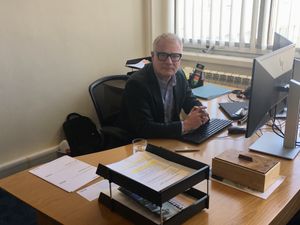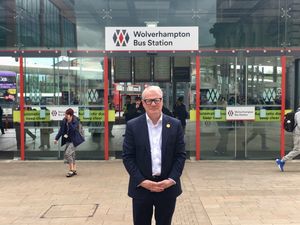£500,000 more to be spent on PPE in Walsall
An extra £500,000 is set to be pumped into buying protective gear and other essential supplies to aid Walsall care workers in the fight against Covid-19.

Walsall Council’s cabinet will meet next Wednesday and are expected to rubber stamp proposals to continue the financial support for adult social care providers who submit additional expenses claims to the authority.
A report to bosses says demand for essentials shows no sign of letting up with carers in the borough putting in expense claims worth hundreds of thousands.
If approved, the support could see the local authority spending up to half a million pounds extra to ensure levels of care of vulnerable residents is continued.
In May the Government announced a £600 million Infection Control Fund for local authorities to help stop the spread of coronavirus in care homes.
Walsall received £2.8 million of this, 75 per cent of which went to residential and nursing care while the rest was allocated to workers who provide care in people’s homes.
But despite this cash injection, the council approved an additional £200,000 spend as expenditure claims from care homes and workers kept coming in.
Since that was approved in May, the authority has received around £400,000 worth of expense claims from more than 40 providers – most of which has been paid through the Government and council funding.
The report said: "As the pandemic continues to impact the way in which providers can operate, the associated cost and inflated price of essential supplies including personal protective equipment (PPE) remains a significant financial pressure.
"The £200,000 approved additional supplier relief budget has now been exhausted, however the pandemic is continuing to have a significant impact on providers and adult social care commissioners do not foresee an end to the additional cost in the near future.
"The council is not obliged to fund the additional Covid-19 related expenditure faced by providers, however, failure to do so could see an already limited local market stretched to the point where operation becomes financially unviable for some providers and they may not be in operation post-pandemic."





